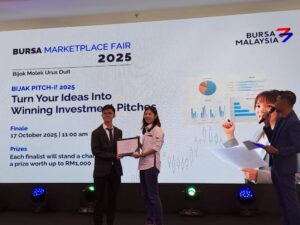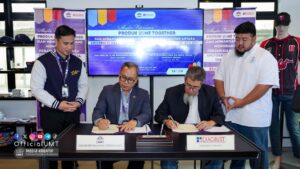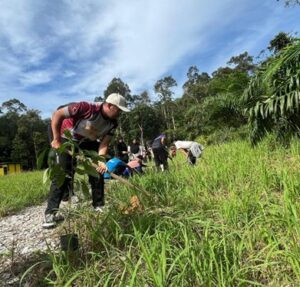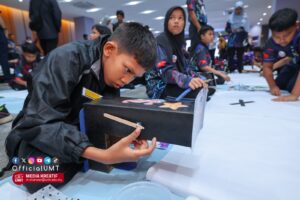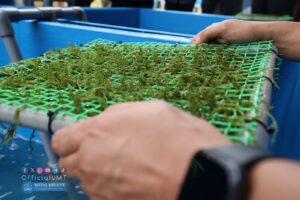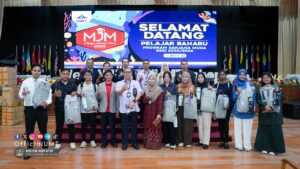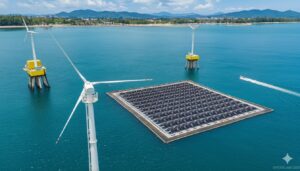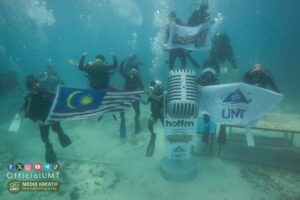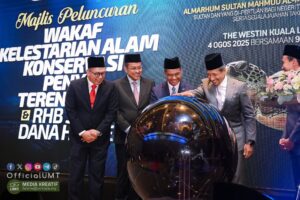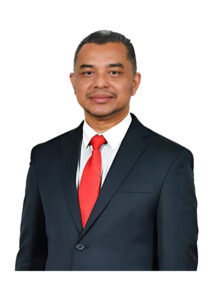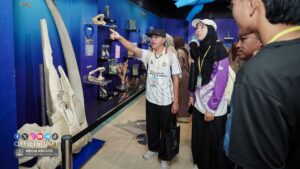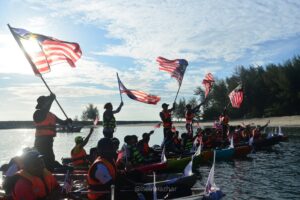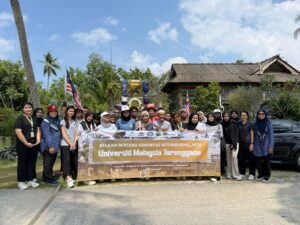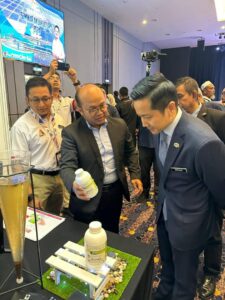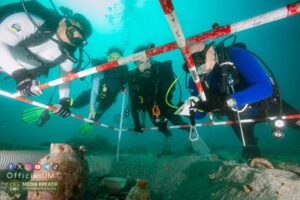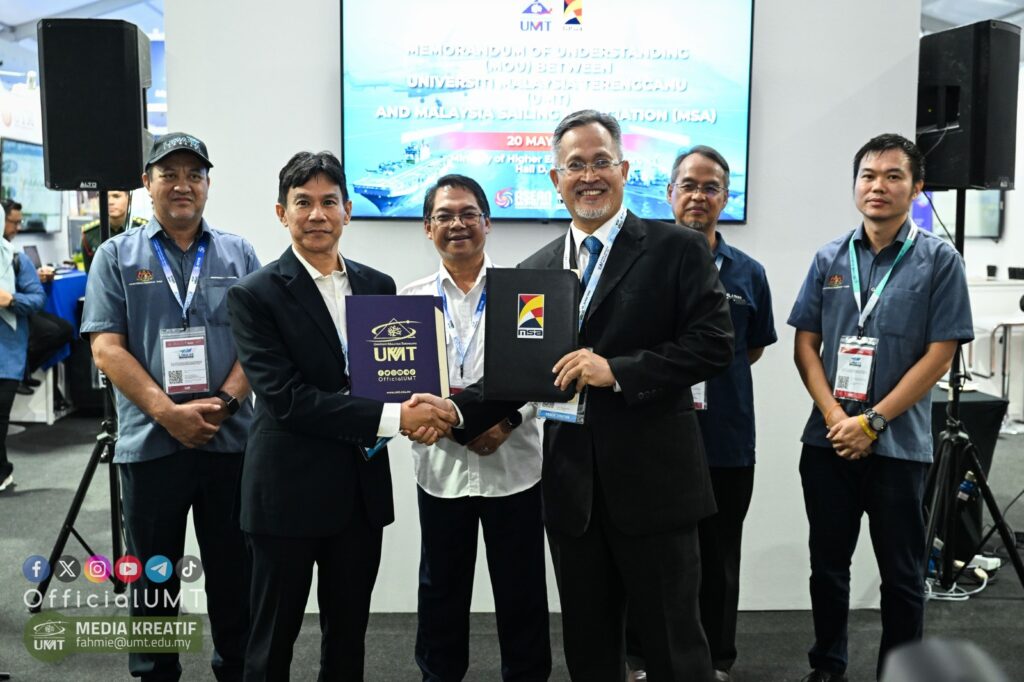
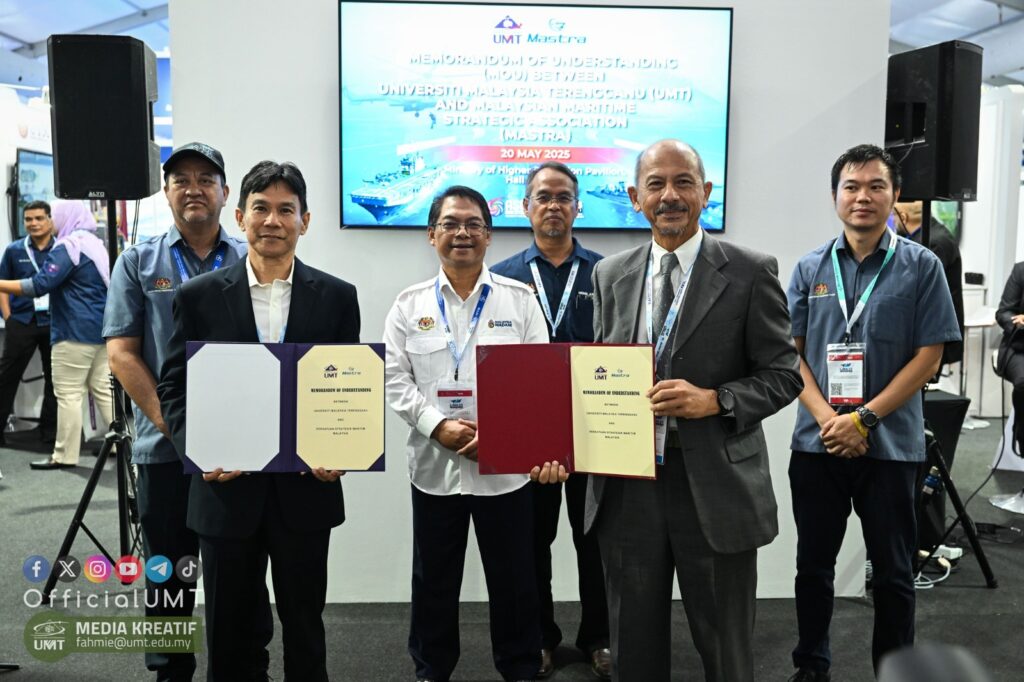
UMT and MSA’s Progressive Step Forward: A New Leap in Education and Sailing Sports
Thursday, 22/05/2025
Share This Article :
Langkawi, 20 May 2025 – A strategic move to strengthen the sailing sports ecosystem and academic development in Malaysia was formalised today through a Memorandum of Understanding (MoU) between Universiti Malaysia Terengganu (UMT) and the Malaysian Sailing Association (MSA).
The MoU was signed in conjunction with the Langkawi International Maritime and Aerospace Exhibition (LIMA) 2025, showcasing UMT and MSA’s commitment to supporting the national agenda of enhancing the country’s maritime and sailing sectors through this prestigious international platform.
According to Professor Dr Mohd Izani Mohd Zain, Deputy Vice-Chancellor (Student Affairs and Alumni), the MoU signifies both parties’ dedication to collaboration in various areas, including education, research, sports development, and the organisation of national and international sailing events.
He added that joint development of academic and professional courses, either fully online or face-to-face, would be expanded to benefit UMT staff, students, coaches, and the sailing community in Malaysia.
“In addition, UMT and MSA will jointly undertake research and publication activities related to sailing, and organise events such as inter-varsity sailing championships, keelboat competitions, and national and international e-sailing regattas.”
“We will also offer opportunities for national athletes and coaches who meet entry requirements to further their studies at UMT, besides providing assets and infrastructure for the development of sailing sports and any other agreed areas of collaboration.”
He further stated that the UMT Sailing Centre would serve as the main hub to realise this cooperation.
This collaboration is timely, as UMT and MSA have enjoyed a long-standing partnership since 2017, working together in the publication of sailing module textbooks, organisation of competency courses for coach development, e-sailing development, and the hosting of international sailing events.
Prof. Izani also added that the partnership is part of the university’s commitment to advancing academic and sports excellence in tandem, particularly in maritime-related fields.
Meanwhile, MSA President Dato Hj Mohd Rawi bin Abdul Hamid also expressed confidence that this joint effort would serve as a catalyst for more sustainable and competitive sailing development, not only in terms of athlete performance but also in research and education.
With the signing of this MoU, UMT and MSA hope to produce more knowledgeable and skilled professionals and sailing athletes capable of elevating Malaysia’s name on the international stage.
The MoU signing was witnessed by YB Datuk Ts. Mustapha Sakmud, Deputy Minister of Higher Education.
At the same event, UMT also signed an MoU with the Malaysian Maritime Strategic Association (MASTRA) to collaborate on maritime-related programmes, particularly exhibitions, seminars, and conferences involving UMT lecturers and students.
In conjunction with LIMA 2025, UMT also participated in the Research Exhibition, showcasing two of the latest maritime innovations by its researchers. The Malaysia Marine Forecast System (MFAST) is a high-tech, locally developed marine weather forecasting system tailored for Malaysian waters.
MFAST provides high-accuracy forecasts every three hours for five days, covering key parameters such as wind, waves, currents, sea temperature, and sea level. With a resolution of around 4 km and a user-friendly interface, this system supports diverse applications including marine safety operations, scientific research, and the offshore and recreational industries. Developed by Ocean Hydro Sdn. Bhd., the system is ready for expansion into local and international markets, thereby helping to strengthen Malaysia’s role in oceanographic forecasting technology.
Also showcased was the Marine Vehicle Operation Simulator Within Mobile Environment, a portable ship-handling simulator developed by VSG Labs Sdn. Bhd. This simulator provides users with realistic piloting experiences, offering training at over 60 different ports. It emphasises safety and compliance with maritime industry procedures, making it an ideal training tool in a secure virtual environment. This innovation holds great potential for use in the sailing training industry and contributes to the development of marine skills on a global scale.

